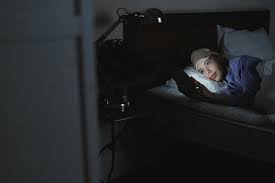A new study led by Flinders University in Australia has found that being exposed to bright light at night can significantly increase the chances of developing serious heart problems, including heart attacks, strokes and heart failure.
Results of the study are published in ‘JAMA Network Open’. Using wrist-worn sensors, researchers from FHMRI Sleep Health tracked over 13 million hours of light exposure and followed participants for up to nine to five years.
The study found that people who were exposed to the brightest light at night were much more likely to develop heart problems, with a 56 per cent higher chance of heart failure and 47 per cent more likely to have a heart attack.
Dr. Daniel Windred, lead author and Research Associate at Flinders University’s FHMRI Sleep Health, said the study highlights a risk factor that many people aren’t aware of, but one that’s easy to address.
“This is the first largescale study to show that simply being exposed to light at night is a strong and independent risk factor for heart disease,” said Dr. Windred.
“Disrupting your body’s internal circadian clock by repeatedly exposing yourself to bright light at night, when it would typically be dark otherwise, will put you at a higher risk of developing dangerous heart issues. “Thankfully, we do have some control over our exposure to light at night.”















